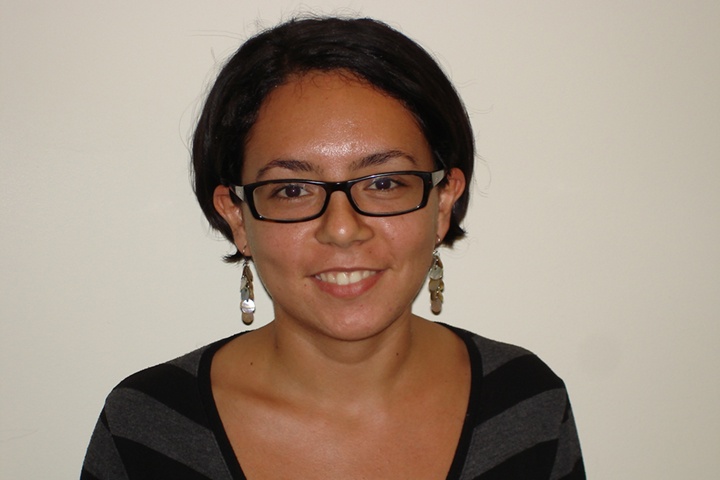Searching for solutions in science and society

Halide Bay '15 Political Science and Biology
Coming of age on Cyprus, an island at war with itself, and at a remove from the rest of the world, Halide Bey ’15 Political Science and Biology, refused to let isolation and conflict diminish her. A Turkish Cypriot, Bey traveled each day from her home in the north to the academically challenging high school in the south she was determined to attend, even though her difficult commute required a passport. When politically motivated masked thugs invaded this school and beat up students, Bey joined community groups attempting to find solutions to violence and ethnic discrimination. “I loved the education there. It taught me how to think, and think big, but it wasn’t always pretty,” she remarks.
This hunger for new learning and personal opportunities brought Bey to MIT in 2011. When a talent for math and science earned her the $100,000 Fulbright Commission Cyprus-America Scholarship, Bey dropped plans for a medical education in London, and headed for Cambridge, MA. At MIT, she has found a way of combining a budding interest in scientific research with a continued concern for her homeland that finds expression both in academic work and extracurricular activities.
"Living in a country in conflict, in an area isolated from the whole world, and especially as part of a community going through such pain, triggered my interest in political science," she says. Bey credits one of her first classes, Assistant Professor Devin Caughey’s Introduction to American Political Process (17.20), with drawing her toward a formal course of study. “The class posed such interesting questions, and gave me a good understanding of what political science was about. After taking it, I was sure I wanted to major in political science.”
Another course, Political Science Scope and Methods (17.869), taught by Associate Professor Fotini Christia, made Bey realize “how incredibly tough political science research is,” she says. “Things happen in the world over which you have no control, and you try to identify the right questions and design the research. This is extremely difficult. I find it harder to do research in political science than in biology.”
Bey knows her way around a lab, too. Since arriving at MIT, she has racked up hours assisting with medical and basic research, including genetic research in C. elegans in with MIT biology professor Dennis Kim, collecting data required for crystallization process design in the lab of Allan Myerson, professor of chemical engineering. Outside of MIT, she engaged in molecular biological research with a dental lab at the Forsyth Institute, and served as a summer intern at the Institute of Pathology, University of Bonn. Says Bey, “The idea that you can be curious about something, systematically try to find out what it actually is, discover things, is extremely exciting for me.”
In addition to course work for her double major, Bey pursues an expansive extracurricular agenda “ almost a third major “ focusing on human rights, conflict resolution, and peer support. As president of the MIT Chapter of Amnesty International, Bey has organized fund drives to deliver humanitarian aid to Syrian refugees, and as a co-founder of MIT’s High Impact Network, she poses questions concerning the most effective strategies for helping people: “When you are under time constraints, should you just start giving money away, or are there better ways to aid people in need, ones that have a greater impact?” But Bey is most excited about a new effort she is spearheading, called Peer2Peer. This is a website, sponsored by top Institute administrators, that encourages students to seek help from others anonymously. “MIT is a place where it’s easy to be stressed,” says Bey. “You don’t always want to talk about your problems with people who know you.”
Bey, who admits to a “passion for trying new things,” will soon face the novel challenge of knitting together her primary interests and shaping career goals. She glimpses a possible way to connect her academic concentrations” something in public health policy that requires a real understanding of biology, for instance. But she feels a strong pull to become more directly involved in politics. “I’d like to be involved in achieving some kind of peace in Cyprus,” she says. “I definitely see myself as a peace activist.”